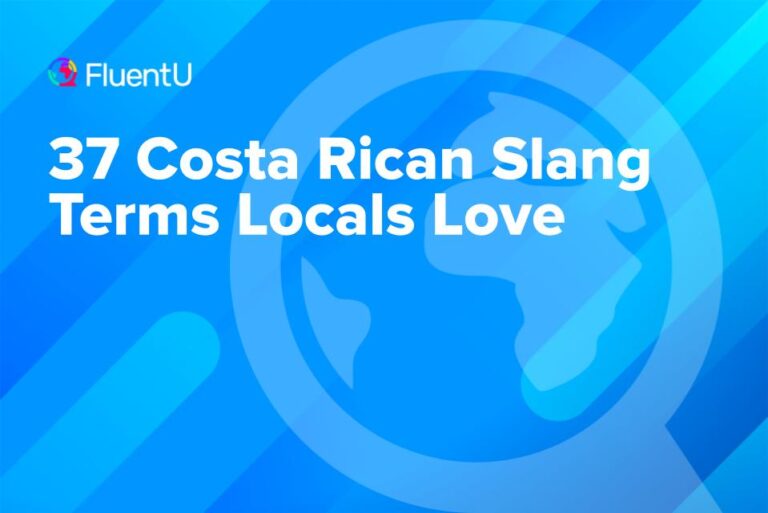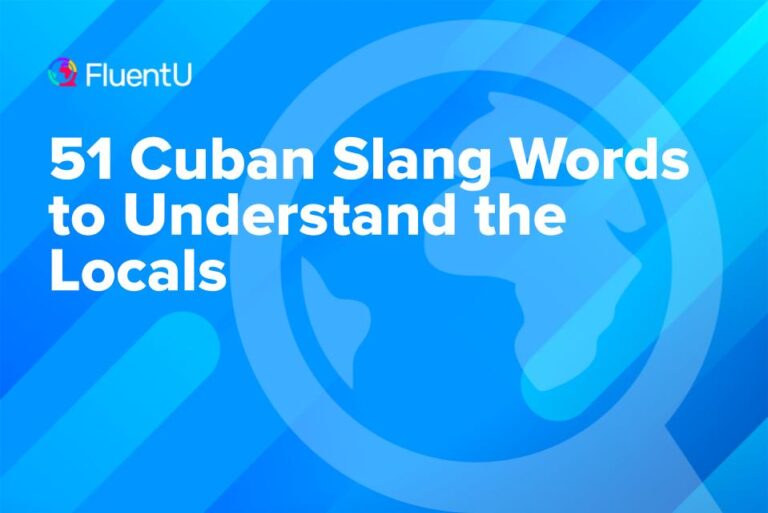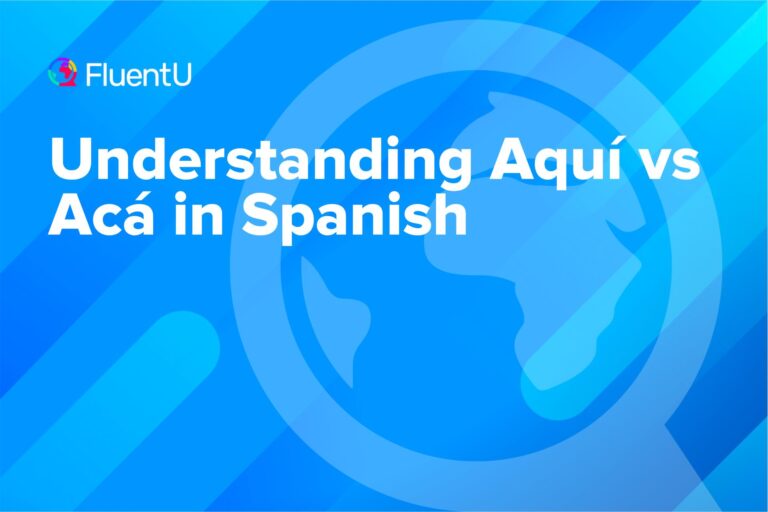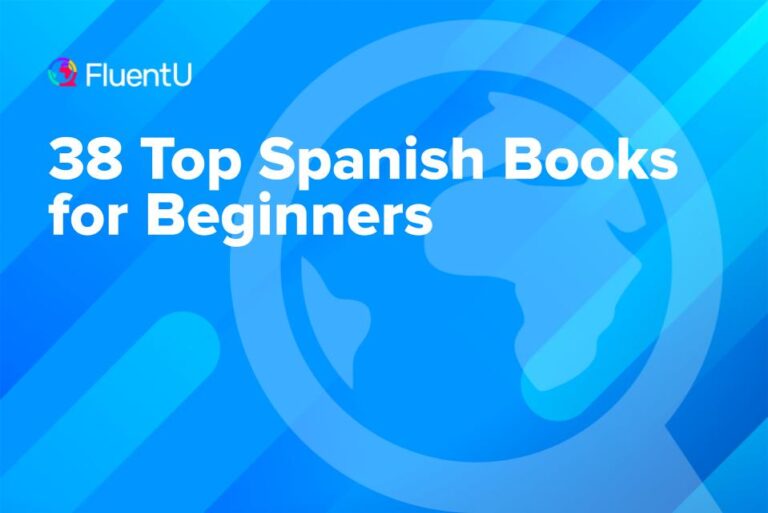79 Colombian Slang Words You’ll Hear in Colombia
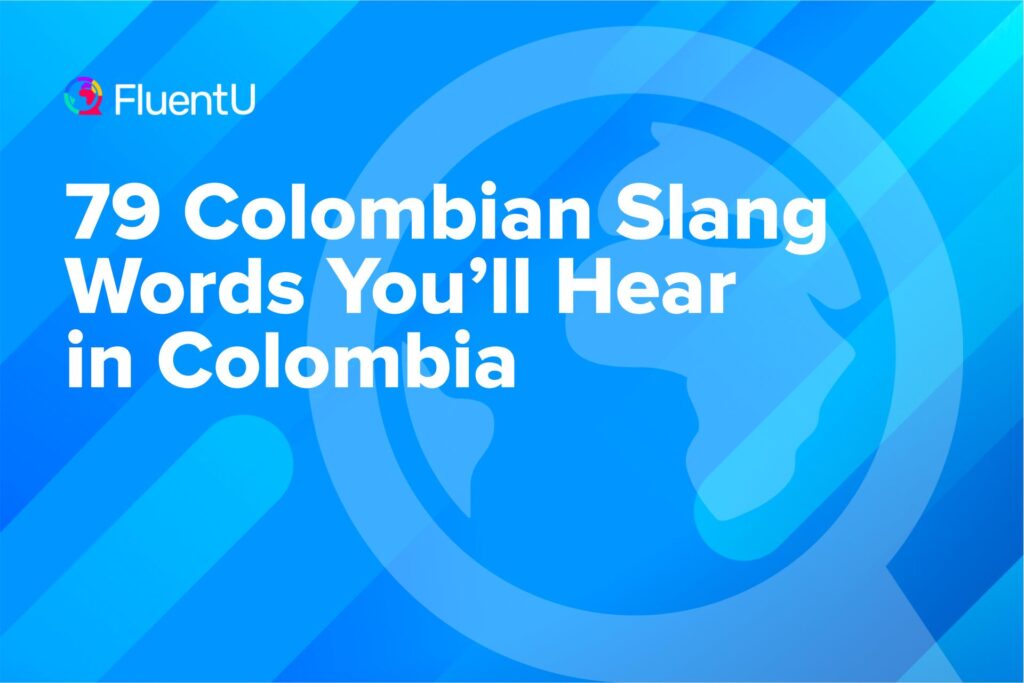
Despite being far from the motherland, Colombians use what is considered to be the “clearest” spoken Spanish dialect. But while the dialect may be clear, the slang is all kinds of colorful.
Speak cleanly and throw in slang wherever it will add flavor and meaning to your sentences: That’s the way to sound like a true paisa .
Download: This blog post is available as a convenient and portable PDF that you can take anywhere. Click here to get a copy. (Download)
What is a Paisa and How to Sound Like One
So what’s a paisa, you might ask? Well, it’s a Colombian!
The name is attributed to a particular region of Colombia (the Paisa region) where their accents are unique to the rest of the country. Some Colombians only use paisa to describe people from this region.
Nowadays though, almost any Colombian is considered a paisa, and this is especially true when Colombians find each other in different parts of the world.
They like to build that international bond by referring to each other as paisas.
Paisa derives from the Spanish word paisano , “countryman,” and it’s just one of the many things you can call your new Colombian friends—but only after you’ve learned their kooky yet creative colloquialisms first!
Paisa Phrases for Friends
1. Parcero / Parcera
Meaning: Bro, dude, my man, girl
Parcero/a is what you can call a friend or acquaintance in Colombia. Colombians like to say it to anyone they meet.
2. ¿Quiubo, Parce?
Meaning: What’s up, bro?
Quiubo is a contraction of qué hubo (what’s been going on?). Parce is a shortened version of parcero/a. Colombians will sometimes simply say “¿Quiubo?” when you want to say “what’s up?”
Note that parce can be directed to any person who’s your age or to whom you don’t need to express additional respect. It could be a friend of a friend you’re meeting for the first time or someone you’ll never see again.
3. Mi Llave / Llavería / Llavero
Literal meaning: My key/key chain
Slang meaning: My (close) friend
Colombians call their close friends llaves (keys). This slang/dialect is also heard in other Latin American countries, like Ecuador. A popular Colombian expression goes like this:
¡Lo saqué del llavero! — I unfriended him! (I took him off the key chain!)
4. El Parche
Literal meaning: The patch.
Slang meaning: The crew, the homies
El parche is your group of friends. It’s classic Colombian slang that’s only heard there.
5. Parchando
Slang meaning: Chillin’, hanging out
I bet you can guess where this word derives from… parchando is the action of hanging out with el parche.
Desparchado is another popular saying that means the opposite: bored, not doing anything.
Estoy en casa desparchado, esperando al parche. — I’m home bored, doing nothing, waiting for the crew.
Party Mode
6. Polas
Meaning: Beers
Polas is only used in Colombia—and although it has no official meaning in Spanish, it does hold some history.
La Pola was the nickname of Policarpa Salavarrieta Ríos , a heroine who helped Colombia gain independence from Spain.
Back in the day, Bavaria Brewing in Colombia created a beer in her honor— La Pola. The beer doesn’t exist anymore, but the name stuck.
¡Páseme unas polas, pues parce! — Well, hand me some beers, dude!
7. Rumbiar
Meaning: To go out, to party
There are two ways to spell this word: as shown above, or with an e instead of an i, rumbear .
Rumbiar may be familiar to other Latino ears; without a doubt, it’s natural and native to Colombian speak.
¡Vamos a rumbiar! — Let’s go out!
8. Rumba
Meaning: The party itself
I know the word looks like Zumba—and hey, that’s a great way to remember it!
Colombians love to dance (not Zumba, but close—salsa), so when they say, “La rumba está buena!” that means, “the party’s good.” They’re dancing and having a blast!
9. Changó
Meaning: To go dancing
Changó is only said in Cali (Valle Del Cauca), a southern region in Colombia.
The name comes from a famous salsa club in Cali called Changó. Every Colombian caleño ‘s hobby is dancing salsa, so when they refer to Changó, they all know that it doesn’t necessarily mean going to the club itself but dancing in general.
10. Toque
Literal meaning: Touch
Slang meaning: A concert, a band
The verb tocar has two translations, “to touch” or “to play” (as in “play” an instrument). In the latter sense, tocar la guitarra means “play the guitar.”
El toque in Colombian Spanish is “the band” itself, but can also be referred to a concert or gig.
11. Estar Prendido / Prendida
Literal meaning: To be lit
Slang meaning: To be buzzed
In English I think we can agree that “to be lit” expresses a state of being tipsy. It has the same meaning in Colombia.
Esa pola me prendió. — That beer got me buzzed.
Be careful with this one, as it has a more sexual connotation outside Colombia.
12. Jincho / Jincha
Meaning: To be drunk
This word is solely Colombian jargon, and it means to be straight-up “drunk.”
Está jincha. — She’s drunk.
13. Guayabo
Literal meaning: A guava tree
Slang meaning: To be hung over
It’s only used in Colombia, but other Latin countries might understand what it means within context:
Tengo un guayabo que me mata. — I have a hangover that’s killing me.
Estoy enguayabada. — I’m hungover.
There’s a curiously wide range of words for “hangover” across Spanish-speaking countries. Learn them all here:
14. Guaro
Literal meaning: Fire water
Slang meaning: Aguardiente
Argentina has wine, Peru and Chile have Pisco, Ecuador has canelazo , and well, Colombia’s got aguardiente!
Aguardiente is Colombia’s national alcoholic drink, and different regions within the country have distilled their own versions: Aguardiente Antioqueño , Aguardiente Del Cauca and so on.
That’s not to say that other Latin countries haven’t distilled their own fire water—they have, but Colombians truly know how to do it best (and I’m not just saying that!).
15. Un Chorro
Literal meaning: A drip
Slang meaning: A swig (of alcohol)
You can either take a “swig” of alcohol or in some cases make reference to the “alcohol” itself.
Regálame un chorro de ese guaro. — Give me a “swig” of that aguardiente.
Or:
Vámonos a comprar un chorro. — Let’s go buy a little somethin’ somethin’ (referring to alcohol).
Keep in mind that every Spanish-speaking country has its own party lingo—Colombian expressions will be completely different from, say, Mexican party slang!
Street Slang
16. A La Orden
Meaning: At your service
When you walk past a store, shop in a market, hail a cab or pay a clerk in Colombia, a la orden will be blurted at you either before or after your service.
If it’s a question: before your service.
If it’s exclamatory: after your service.
Vendors will repeat this phrase to grab your attention, in hopes that you’ll purchase something. A cab driver will post up to you, shouting it. It’s just a way to say:
“Can I help you?”
“Are you being helped?”
“Thanks for your business!”
…and so on!
17. Lucas
Meaning: Colombian Pesos
Lucas is obviously a name, but in Colombia, one luca is one Colombian Peso. 20 lucas is 20 Colombian Pesos.
18. Billete
Meaning: Dollar bills, money
Billete, “bill,” is a common Spanish word. It can mean a ticket, like boleto , or bills, as in, “dollar dollar bill y’all.”
In Colombian Spanish, “money” is billete—period. They don’t pluralize it. They leave it as is.
No tengo billete. — I don’t have money.
¿Cuántos billetes hay? — How many bills are there?
19. Plata
Literal meaning: Silver
Slang meaning: Money
Plata is similar to billete, and used exactly the same way. It’s left as is and not pluralized.
¡Papi, necesito plata! — Daddy, I need money!
For more slang words for money in Spanish, check out this post:
42 Spanish Slang Words for Money from Around the World | FluentU Spanish
There are lots of Spanish slang words for “money”. You might already know “dinero” and “plata,” but to understand financial talk from around the Spanish speaking world,…
20. Una Chuspa
Meaning: A plastic bag
Chuspa is a Colombian’s way of saying, bolsa (or funda ) plástica . This term is also heard in other Spanish-speaking countries.
21. La Olla
Literal meaning: The pot
Slang meaning: The slums
This is the Colombian way to talk about slums, ghettos, drug-ridden neighborhoods, etc.
22. Los Tombos
Meaning: The police
Only original to Colombia.
Ya vienen los tombos. — The cops are coming.
23. ¡Ábrase!
Literal meaning: To open up
Slang meaning: To leave, scatter, get out
There are different ways to use this expression:
Bueno pues, me abro. — Alright well, I’m leaving.
¡Abrasé! — Leave! (can be used in a mean context, as a demand or an exclamatory remark).
24. Dar Papaya
Literal meaning: To give papaya
Slang meaning: To ask for it
Papaya is a South American fruit, but in Colombia it’s anything that holds value to you.
Jewelry, an iPhone, an expensive watch and your wallet can all be papaya.
If you want to keep these from getting stolen or pick-pocketed on the street (normal in most major cities) act smart, hide them, and no des papaya.
This idiom is a little hard to translate, but it closely means, “don’t give them a reason to rob you.”
It also means, “don’t let yourself get taken advantage of,” or “put yourself in a dangerous situation.” Simply, “don’t ask for it.”
25. Sapo / Sapa
Literal meaning: Frog
Slang meaning: A snitch, rat, gossip, busybody
This is a person who can’t keep a secret and may well end up throwing someone under the bus.
Other Latino countries use this expression too, but it’s very popular amongst paisas.
Usted le dijo a mamá que salí anoche, ¡qué sapa! — You told mom I went out last night, you’re such a snitch!
26. Te Caigo
Literal meaning: To fall
Slang meaning: To stop by, drop by
Llámame mañana y te caigo. — Call me tomorrow and I’ll stop by.
Love Life
27. Entucar
Slang meaning: To kiss
Colombian use only, and it means to smooch.
Ese chico te quiere entucar — That boy wants to kiss you.
28. Estar Tragado / Tragada
Literal meaning: To be swallowed (by someone)
Slang meaning: To be head over heels/in love
Ella me tragó — She’s got me love stuck.
Él está tragado — He’s head over heels.
29. Gallinear
Literal meaning: To rooster
Slang meaning: To woo
It’s usually said about a male that woos a female (just like in English). Due to the rooster reference, it’s more strongly masculine.
30. Caer
Literal meaning: To fall
Slang meaning: To flirt
Vaya, cáigale a esa chica. — Go hit on that chick.
Colombian Expressions
31. ¡Chimba!
Meaning: Various things, see below
This is one of those made-up words that have many meanings and a variety of uses.
¡Qué chimba! — That’s cool or awesome.
Algo más chimbo. — Something so “cheap,” dull, useless.
¡La chimba, hermano! — No way, bro!
32. ¡Qué Gonorrea!
Literal meaning: What Gonorrhea!
Meaning: Various things, see below
Yep, you heard me right. Like the STD.
Colombians are crazy, let’s just put that out there. Like chimba, this expression has many odd ends.
Something can be a Gonorrea , or someone can be a Gonorrea. And it can either be a negative or positive remark. It all depends on context and clues.
When time is not on their side, Colombians like to shout ¡Qué Gonorrea!
When a friend is acting silly and stupid, yet funny, they call them una Gonorrea .
Even to just talk about a person:
Mira a este Gonorrea. — Look at this dude.
This is a very, very common saying for Colombians, so don’t be surprised when you hear the word Gonorrhea thrown around. But you should only practice it around friends and family—don’t go around calling your tour guide una Gonorrea unless you’ve become buddies!
33. ¡Es Una Nota!
Literal meaning: It’s a note!
Slang meaning: It’s awesome!/real good!
This expression can be used to describe a person or an instance.
Ella es una nota bailando — She’s awesome at dancing.
34. ¡Paila!
Literal meaning: A ceramic, metal pan
Slang meaning: Too bad!
¡Me olvidé el deber en la casa! Qué de malas—¡paila! — I forgot my homework at my house! What bad luck—oh well, too bad!
35. ¡Estar Moscas!
Literal meaning: To be flies, to be like flies
Slang meaning: Be alert!
This means to be quick and swift as a fly. Alert and on point.
36. ¡Pilas!
Literal meaning: Batteries
Slang meaning: Keep your eyes peeled!
Same as estar moscas, estar pilas means to be sharp and alert. ¡Pilas! on its own means the same thing.
37. ¡Berraquísimo!
Literal meaning: A wild boar ( berraco ).
Slang meaning: Off the heezy! Cool!
This is only used in Colombia, nowhere else.
38. Un Catorce
Literal meaning: A fourteen.
Slang meaning: A favor
Hágame un catorce. — Do me a favor.
39. Mamar Gallo
Literal meaning: Suck a rooster
Slang meaning: Loligagging, procrastinating
¡Deje de mamar gallo! — Stop loligagging!
Weird Words
These next set of words have no literal meanings, they’re all creatively made up.
40. Chiviado
Slang meaning: Bootleg, knockoff, fake
¡Este DVD está chiviado, hombre! — This DVD is a fake, man!
41. Cachivaches
Cachivaches is always said plural, never singular. It’s possible, but just weird. No one says it that way.
Slang meaning: Thingamabobs, thingamajigs, trinkets
Tengo muchos cachivaches que necesito acomodar. — I have a lot of junk I need to organize.
42. Chucha
Slang meaning: Bad B.O.
Chucha is a funny one, with different meanings in other Spanish-speaking countries of Latin America. In Spain it means absolutely nothing, and it’s not considered an “official” Spanish word.
In Ecuador chucha is a curse, so be careful when and how you say it. In Colombia it’s just bad body odor.
Huelo mala chucha — I smell bad B.O.
Tienes chucha — You have B.O.
43. Pecueca
Slang meaning: Stinky feet
This word’s only native to Colombia.
Tengo pecueca — I have smelly feet.
Tienes pecueca — You have stinky feet.
Pecueca is pecueca and doesn’t change whether it’s plural, feminine, singular or masculine, it always stays the same!
44. ¡Fúchile!
When you smell pecueca what do you say?
Fúchile is used to denote smell, and bad smells only! It doesn’t make sense to shout fúchile when looking at something physically gross.
¡Fúchile! — Ew!
45. ¡Guácala!
Slang meaning: Gross!
I know it looks like guacamole, but it’s not!
Similar to fúchile, guácala is shouted when something is gross or unpleasant. Anything nasty that isn’t a foul smell can be guácala, because in the case of a foul smell you’ll use ¡fúchile!
46. Chichí
Slang meaning: To urinate
Chichí might ring familiar to other Spanish speakers because it’s a common slang term for saying “pee pee.”
Necesito hacer chichí. — I need to take a whiz.
Vaya a hacer chichí. — Go make pee pee.
47. Un Bollo
Literal meaning: A bun (of bread), a special type of steamed roll
Slag meaning: A turd
I can’t tell you why Colombians use this word to refer to a piece of turd, but they do, and it’s only heard in their corner of the world. It could have to do with the appearance of the edible bollo dish (see link above).
¡Pisé un bollo! — I stepped on a piece of poop!
48. Churrias
Slang meaning: Diarrhea
Like bollo, churrias is familiar to Colombian ears only.
Tengo churrias. — I have diarrhea.
Everyday Talk
49. ¿O Qué?
Meaning: Or what?
The words o and qué are official Spanish words, but when put together in a short, quippy sentence they become a Colombian thing.
¿O qué? is kind of like saying “or what?” And Colombians will add the phrase to end of every question.
¿Estás bien o qué? — Are you okay, or what?
¿Comemos o qué? — Are we going to eat, or what?
50. Vaina
Literal meaning: a sheath (a covering, case, etc.)
Slang meaning: Thing
In Colombia (and many other parts of Latin America) this is used to describe anything. Even if you don’t know what something is, it’s still a vaina.
I do want to point out that this form of expression is a bad habit, because constantly saying “thing” or “thingie” is called being lazy.
There are some instances when saying vaina is excusable, for example, when you truly don’t know what something is. But I do advise that if you honestly know what something is, try your best to describe it with all the Spanish words in your repertoire, because that’s the only way you’re going to truly learn!
Don’t be lazy!
¿Qué es esa vaina? — What is that thing?
¿Qué vaina es esa? — What the heck is that?
Ayer comí una vaina tan deliciosa, pero no sé qué era. — Yesterday I ate something so delicious, but I don’t know what it was.
51. Foquiado / Foquiada
Slang meaning: Deep sleep, passed out, knocked out
There is no literal meaning for this one.
If you take a light bulb, un foco , and punch its lights out, what do you get?
Foquiado.
That might be a nice way to remember it.
Marta está foquiada, ¡sigue durmiendo! — Marta is passed out, she’s still sleeping!
52. Rancho
Literal meaning: A ranch
Slang meaning: Home
To Colombians a ranch is their house/home. It’s also a farm.
Me voy pa’ el rancho. — I’m going home.
53. Chino
Literal meaning: Chinese person
Slang meaning: Child
Chinos is the Colombian way to say hijos (children or kids).
Mis chinos siempre se comportan mal. — My kids are always misbehaving.
54. Camello
Literal meaning: Camel
Slang meaning: Job
Camello usually points out a job that requires loads of physical labor.
Ese camello me cansa. — That job tires me.
55. Pieza
Literal meaning: Piece
Slang meaning: Bedroom
Pasa a la pieza, por favor — Pass to the bedroom, please.
56. Un Tinto
Literal meaning: A tint, a taint, a dye (red)
Slang meaning: A black coffee
Spaniards say tinto when referring to a glass of red wine ( vino tinto ), but Colombians are referring to something completely different.
Me gustaría un tinto, por favor. — I would like a black coffee, please.
57. Cuadremos
Literal meaning: To square up
Slang meaning: To schedule
Colombians will say cuadremos when they want to organize, schedule a date, meet up with you, plan, coordinate, etc.
Cuadremos algo para mañana. — Let’s plan something for tomorrow.
58. Embarrar
Literal meaning: Smear
Slang meaning: To mess up, ruin
When something goes wrong or messes up, Colombians use embarrar. This should be conjugated when used, according to the situation.
¡Yo lo embarré! — I messed it up!
Ella embarró su chance con ese man. — She ruined her chance with that dude.
59. Parar Bola
Literal meaning: To stand ball
Slang meaning: To give attention to, listen
This is another popular phrase that’s heard around Latin America.
¡No le pares bola! — Ignore him!
¿Por qué no me paras bola? — Why aren’t you listening to me?
60. Cascar
Literal meaning: Shell, casing, helmet (casco).
Slang meaning: To hit, to smack, to give a whooping
This is what Colombian parents say to their chinos when they misbehave.
¡Si no paras te voy a cascar! — If you don’t cut it out, I’m going to give you a good whooping!
61. Nombre De Dios
Slang meaning: Name of God
Colombian children are taught to say this to their elders the minute they say “hello” or walk into a house, or whenever they leave and say “bye.”
If you don’t, prepare to hear a stern statement that involves the word cascar!
Hola mamá, nombre de Dios. — Hi mom, in the name of God.
Chau, papi, nombre de Dios. — Bye daddy, in the name of the God.
Colombian Adjectives
62. Un(a) Berraco / Berraca
Literal meaning: A wild boar
Slang meaning: A go-getter
¡Tu hermano es un berraco! Me cae bien. — Your brother is the best, I really like him.
63. Bobo / Boba
Slang meaning: Silly, dumb, stupid
A bobo/boba is a fool. It’s quite popular throughout South America, but Colombians tend to use it a lot.
No seas tan boba. — Don’t be so silly.
64. Gordo / Gorda
Slang meaning: A term of endearment
Literal meaning: Fat
It’s a popular term of endearment for friends, family, girlfriends, boyfriends and any other loved ones in most parts of Latin America, not just Colombia.
Some speakers might even add an is to the end of the word, turning it into gordis . This word is unisex.
Ven aquí mi gordis. — Come here my little fatty.
Llama a nuestra gorda. — Call our daughter.
65. Mono / Mona
Literal meaning: Monkey
Slang meaning: Light-skinned, fair-haired
Mono/Mona has different meanings depending on which Spanish-speaking country you’re in.
In Spain, it’s a way to call someone pretty or cute.
In Colombia, the word’s used to describe a light-skinned, fair-haired person. Typically a blonde—whether pretty or not—can always be considered a mono or mona. You’ll hear this a lot throughout Colombia.
66. Pelota
Literal meaning: Ball
Slang meaning: Idiot
Although it’s a feminine word, pelota is said to both males and females who are, well, “idiots.”
In Argentina they say pelotudo , which is essentially the same remark.
Note that the udo in pelotudo is a made-up addendum. Colombians have kept it simply as pelota.
¡Qué pelota que eres! — What an idiot you are!
67. Cansón / Cansona
Literal meaning: Tiresome (from cansado )
Slang meaning: Annoying, pain in the butt
Cansón derives from the word cansado/cansada, but Colombians use the adjective to illustrate the actual person who tires them.
Esa niña es tan cansona — That girl is a pain.
68. Mamado / Mamada
Literal meaning: Sucked
Slang meaning: Tired, exhausted, fed up
Can be associated with cansón, but not quite. Unlike cansón, mamado defines the person who’s tired.
Think of being “sucked dry” of your energy (mental or physical) and you’ll be able to remember mamado.
Context is crucial, so be careful how you express this word outside of Colombia. Actually, keep it only in Colombia, because other Spanish speakers could get a little perverted on you.
Hoy caminé toda la ciudad, y ahora estoy mamada. — Today I walked the entire city, and now I’m exhausted.
¡Ya me mamé, deje de ser tan cansón! — I’m fed up, stop being so annoying!
69. Lobo / Loba
Literal meaning: Wolf
Slang meaning: Trashy, tacky
In Colombian this word portrays a tacky, trashy or displeasing person.
Mira a esa mujer, qué loba con ese traje — Look at that woman, so tacky with that outfit.
70. Juicioso / Judiciosa
Literal meaning: Judicious (judgement).
Slang meaning: Well-behaved
A Colombian chino (child) is rarely juicioso/judiciosa.
Por favor sean juiciosas. — Please behave.
71. Maluco / Maluca
Slang meaning: Ill, sick, bad taste
This is one of those Colombian-only words.
Comí esa sopa, pero ahora me siento maluco — I ate that soup, but now I feel sick.
Si sales con el pelo mojado te vas a sentir maluca. — If you go out with your hair wet you’re going to feel sick.
72. Tener Buena Pinta
Literal meaning: To have good paint.
Slang meaning: To be good-looking, handsome
Tener buena pinta is a popular Colombian phrase that’s also said in other parts of Latin America.
Exclusively said about males, it’s a way for men to compliment other men, but women can say it too—about men of course.
Sí, ese man tiene buena pinta. — Yeah, that guy’s good looking.
Fiery Remarks
73. ¡Huevón!
Slang meaning: Dummy!
Huevón evolves from the word “egg,” huevo .
And it’s widely used amongst Latin Americans in the same fashion, though there are other variations.
¡Qué huevada! — Darn!
¡Me vale hueva! — I could care less!
¡No seas un huevón! — Don’t be a dummy!
74. ¡Miércoles!
Literal meaning: Wednesday
Slang meaning: Shoot!
It’s just a lighter way to say you know what! You don’t know what? Think of a 6-letter Spanish word that begins with mier.
75. ¡Juepucha!
Slang meaning: Dang!
If you know your Spanish curses, then might know what this one’s trying to convey.
Like our versions of “freaking” and “heck,” juepucha is like saying hijo de …(you know what—yup, another curse word). Jue is substituted for the word hijo and de , kind of blending their sounds together, and pucha is substituted for the curse itself.
Don’t ever, ever call anyone this, but if you stub your toe and no one’s listening, feel free to shout it!
¡Ay yai yai, juepucha! — Ow, son of a gun!
76. ¡Juemadre!
Slang meaning: Darn!
The same works for juemadre. It’s like saying, “mother lover,” instead of “bleep, bleep.”
Or more like, “son of a mother”—you get the picture, right?
77. ¡Malparido! / ¡Malparida!
Literal meaning: Born bad
Slang meaning: Bastard
Parir means “to give birth.” Mal means “bad” or “wrong.” And malparido technically translates to, “given birth to the wrong way.”
I would say it’s the equivalent of “bastard,” so try not to say this word unless it’s dire.
78. ¡La Cagué!
Literal meaning: I pooped it
Slang meaning: I screwed up
Cagar translates as “to poop,” but “to poop it,” is to say you’ve “screwed it up” in the moment.
If a Colombian is in the middle of fixing something and it breaks, they shout:
¡Juepucha, la cagué! — Darn, I screwed it up!
79. Emberracarse
Slang meaning: To be miffed
Emberracarse is another variation of berraco (a word that was on this list, do you remember its meaning?).
Colombians use it to depict angry people.
Ella se emberracó porque llegué muy tarde. — She was angry because I arrived too late.
And that concludes our list.
You have 79 (technically more) Colombian slang words to add to your language-learning journey!
To hear them in action, we recommend a stop by Gritty Spanish (assuming you’re all grown up and okay with some mature language). They often incorporate Colombian slang and accents into their dialogues, so it can be a fun—and slightly offensive yet humorous—way to hear your Colombian Spanish in action, used by native speakers in real ways.
FluentU is another online language learning program that lets you hear native Spanish from all over the world, including the Colombian variety.
FluentU takes authentic videos—like music videos, movie trailers, news and inspiring talks—and turns them into personalized language learning lessons.
You can try FluentU for free for 2 weeks. Check out the website or download the iOS app or Android app.
P.S. Click here to take advantage of our current sale! (Expires at the end of this month)

Now, get out there and start talking like a true Colombian!
Download: This blog post is available as a convenient and portable PDF that you can take anywhere. Click here to get a copy. (Download)
And One More Thing…
If you've made it this far that means you probably enjoy learning Spanish with engaging material and will then love FluentU.
Other sites use scripted content. FluentU uses a natural approach that helps you ease into the Spanish language and culture over time. You’ll learn Spanish as it’s actually spoken by real people.
FluentU has a wide variety of videos, as you can see here:

FluentU brings native videos within reach with interactive transcripts. You can tap on any word to look it up instantly. Every definition has examples that have been written to help you understand how the word is used. If you see an interesting word you don’t know, you can add it to a vocab list.

Review a complete interactive transcript under the Dialogue tab, and find words and phrases listed under Vocab.

Learn all the vocabulary in any video with FluentU’s robust learning engine. Swipe left or right to see more examples of the word you’re on.

The best part is that FluentU keeps track of the vocabulary that you’re learning, and gives you extra practice with difficult words. It'll even remind you when it’s time to review what you’ve learned. Every learner has a truly personalized experience, even if they’re learning with the same video.
Start using the FluentU website on your computer or tablet or, better yet, download the FluentU app from the iTunes or Google Play store. Click here to take advantage of our current sale! (Expires at the end of this month.)
